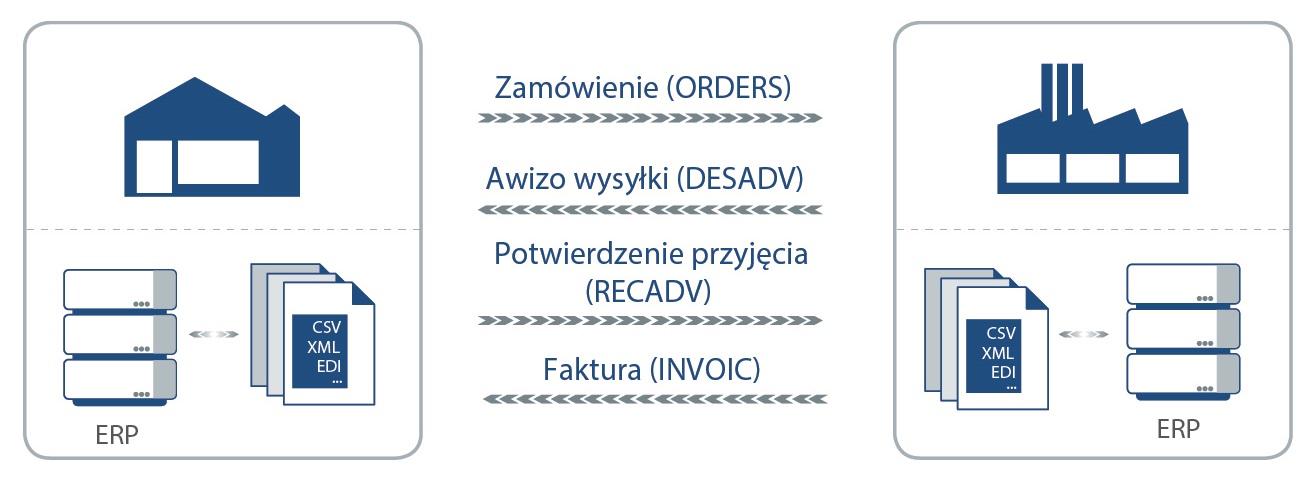In the complex and fast-paced world of logistics, transport, and shipping, efficiency is key. Electronic Data Interchange (EDI) has become an essential tool for businesses looking to streamline their operations and improve communication with partners across the supply chain. From automating processes to enhancing visibility, EDI is revolutionizing the way goods are moved from point A to point B. Join us as we explore the impact of EDI in the logistics industry and uncover how this technology is driving new levels of efficiency and collaboration in the world of transportation and shipping.
EDI Implementation in Logistics: Streamlining Communication and Data Exchange
In the realm of logistics, implementing Electronic Data Interchange (EDI) can revolutionize the way communication and data exchange occur within the industry. By streamlining processes and automating transactions, EDI can bring efficiency and accuracy to logistics, transport, and shipping operations.
With EDI implementation, companies can enjoy benefits such as real-time tracking of shipments, improved inventory management, and reduced errors in data entry. The seamless exchange of information between trading partners through standardized electronic documents enhances transparency and visibility throughout the supply chain. Additionally, EDI allows for faster order processing, invoicing, and payment, ultimately leading to cost savings and increased productivity for businesses. In a world where speed and accuracy are paramount, EDI is a game-changer for companies looking to stay competitive in the logistics industry.
Optimizing Transport Operations through Electronic Data Interchange
Electronic Data Interchange (EDI) has revolutionized the way transport operations are managed in the logistics and shipping industry. By exchanging electronic documents in a standardized format, EDI streamlines communication between different parties involved in the transportation process. This results in increased efficiency, reduced errors, and faster processing times.
With EDI, transport companies can easily track shipments, manage inventory levels, and communicate with suppliers and customers in real time. By automating these processes, transportation operations become more cost-effective and sustainable. EDI provides benefits such as:
- Improved data accuracy
- Enhanced transparency
- Reduced paperwork
- Streamlined operations

Enhancing Shipping Efficiency with EDI Integration
In today’s fast-paced world, businesses are constantly seeking ways to streamline their operations and increase efficiency. One key area where companies can achieve significant improvements is in their shipping processes. By integrating Electronic Data Interchange (EDI) technology into their logistics systems, businesses can enhance shipping efficiency in a variety of ways.
Here are some ways that EDI integration can benefit shipping processes:
- Real-time tracking and monitoring of shipments
- Reduced paperwork and manual data entry errors
- Improved communication and collaboration with suppliers and carriers
- Automated order processing and invoicing

Key Benefits of Incorporating EDI in Logistics, Transport, and Shipping Operations
Implementing Electronic Data Interchange (EDI) in logistics, transport, and shipping operations can offer a multitude of key benefits. By embracing EDI, companies can streamline their processes, improve efficiency, and enhance overall productivity. One of the main advantages of incorporating EDI is the reduction of manual data entry errors, leading to more accurate and reliable information exchange among different stakeholders. This can help in avoiding costly mistakes and delays in the supply chain.
Furthermore, EDI enables seamless communication between trading partners through standardized electronic documents. This promotes faster transaction processing, increased visibility into shipment statuses, and better decision-making capabilities. By automating data exchange through EDI, businesses can enhance customer satisfaction, reduce operational costs, and gain a competitive edge in the fast-paced logistics industry. Ultimately, adopting EDI technology in logistics, transport, and shipping operations is a strategic move towards modernizing and optimizing business processes for greater success.
Concluding Remarks
In conclusion, Electronic Data Interchange (EDI) has revolutionized the way logistics, transport, and shipping industries operate. By streamlining communication, reducing errors, and increasing efficiency, EDI has become an essential tool for businesses looking to stay competitive in today’s fast-paced world. As technology continues to advance, the possibilities for EDI are limitless, promising even greater improvements in the future. Embracing this innovative technology is key to staying ahead of the curve and paving the way for a more seamless and connected global supply chain.
